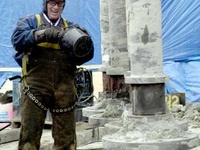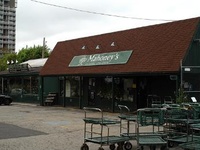The city’s current 20-year PILOT agreement was negotiated in 1990, but for the last several months, Harvard has been in talks with the city manager to strike a new deal. Both Stone and Sullivan say they expect an agreement to come soon, Sullivan predicting it will be in five or six months. The city is also negotiating a similar agreement with MIT.
Although they express willingness to renegotiate the PILOT agreement, Harvard officials say that the University also contributes to the area’s economy by attracting high-tech companies and research grants—funding that is often overlooked.
Power cites a study released in March, which showed that the area’s research universities contribute $7.4 billion to the regional economy.
“The study shows the collective strength of the eight research institutions in the area is unmatched,” Power says.
A New Deal?
With encouraging signs in the Agassiz neighborhood and a new PILOT agreement in the works, city officials are optimistic about their current relationship with Harvard.
“I think that were seeing a new level of involvement and participation by the University,” says Councillor David P. Maher.
Maher is chair of the council’s University Relations Committee, which Sullivan appointed in January 2002 to forge better ties between the city and its universities.
The mayor says he is starting to see Stone and other University administrators focus more on Cambridge. Stone’s predecessor, Paul S. Grogan, worked to build bridges to Boston, but many Cambridge residents and officials say they felt ignored under his tenure.
“In the not-so-distant past, much of the relationship building has been on the other side of the river,” Sullivan says.
He also praised Summers for attending community events and having a more visible presence.
Stone says he encourages Summers to attend local activities.
“It’s where communication takes place,” Stone says. “The frequency of those kinds of things are increasing because we [the University and the city] have gotten to know each other better.”
Stone says improved ties between the University and the city are crucial as Harvard looks ahead to major development projects on both sides of the Charles River.
“We have a general feeling in the center with all the projects that are underway in Cambridge and in Boston that we have to focus on collaborative relations with the community,” he says. “It’s not really a choice.”
—Staff writers Alexandra N. Atiya, Lauren A. E. Schuker, Jenifer L. Steinhardt, and Elisabeth S. Theodore contributed to the reporting of this article.
—Staff writer Jessica R. Rubin-Wills can be reached at rubinwil@fas.harvard.edu.










